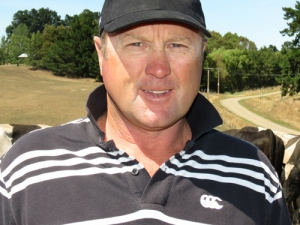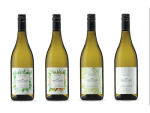Affluent markets are the key prize in a free trade agreement with the EU, says ag trade envoy Mike Petersen.
"It is a significant opportunity for New Zealand particularly for our primary sector," says Petersen.
Prime Minister John Key and EU leaders have said that negotiations on an EU-NZ FTA will start as soon as possible.
Petersen told Dairy News our trade has diversified in the past 20 years away from Europe quite successfully with growth into China and Asia, he says.
"But I have always had concerns about being reliant on any single market. The pendulum has swung quite a long way and I reckon it's time for us to re-engage with Europe.
"There are over half a billion consumers there and a huge number are very wealthy despite the economic woes of Europe. It is easy to think Europe is in the doldrums economically but many people there can afford to pay what we need for our high quality products."
In the last few years in his trade envoy role, Petersen, the former chairman of Beef + Lamb NZ, says he has come to strongly believe we have to balance the export markets for all our primary sector products.
"We must have good access to affluent markets, not just emerging markets, and that's where Europe immediately fits in."
He admits exporting dairy to Europe is like sending coals to Newcastle. Europe produces 150 billion litres of milk, the US produces 95b litres – and NZ produces 20b litres.
"But for the dairy products we produce, market access into Europe is pretty much prohibitive because of the tariffs applied.
"So it is hard even for the products we specialise in like butter for instance. It is very difficult to get access to Europe."
Petersen says the last agreement we had with Europe was 30 years ago. "So a lot has moved since then. This is now an old trade agreement and it is definitely due for refreshing."
Of the 161 WTO member countries, only six don't have a FTA with Europe or one under negotiation. Those countries are Russia, Hong Kong, China, Taiwan, Australia and New Zealand.
"We have used that argument a lot when we have been up there lately -- saying 'this doesn't feel right'; that we have such a long history of doing business with Europe and we are one of the countries that sit outside when it comes to a preferential trade agreement."
The process could take a couple of years, in the first year looking at the benefits for each country in a potential FTA, and that could take a year. Then the negotiations themselves will be held, generally expected to take about two years
Petersen says we don't want to rely on any one market, we need to balance that around the world.
"Affluent markets are needed; we are talking about countries where GDP per capita -- purchasing power -- is higher than NZ. Of the 28 member countries of Europe I'm sure there would be about 10 countries wealthier than NZ.











